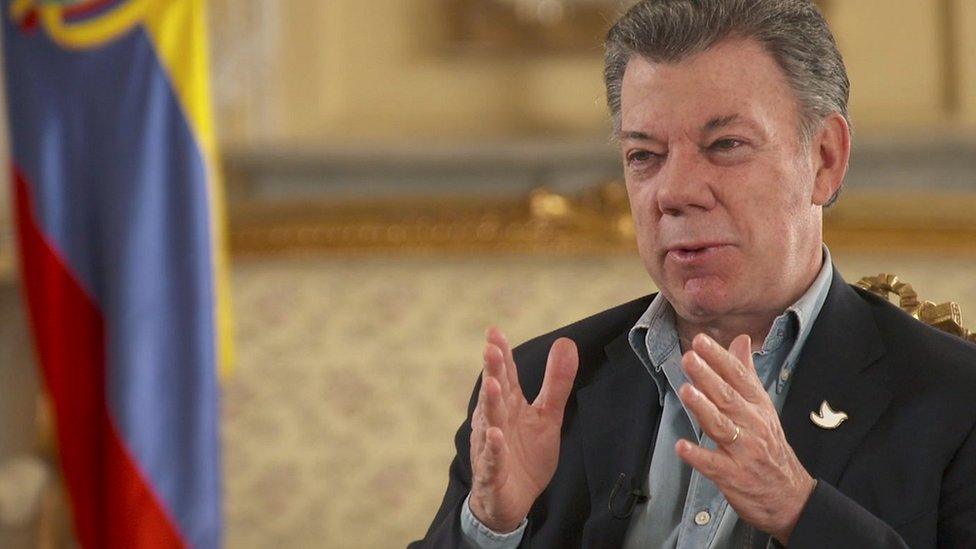Colombia Farc: President Santos says talks will not be extended
- Published
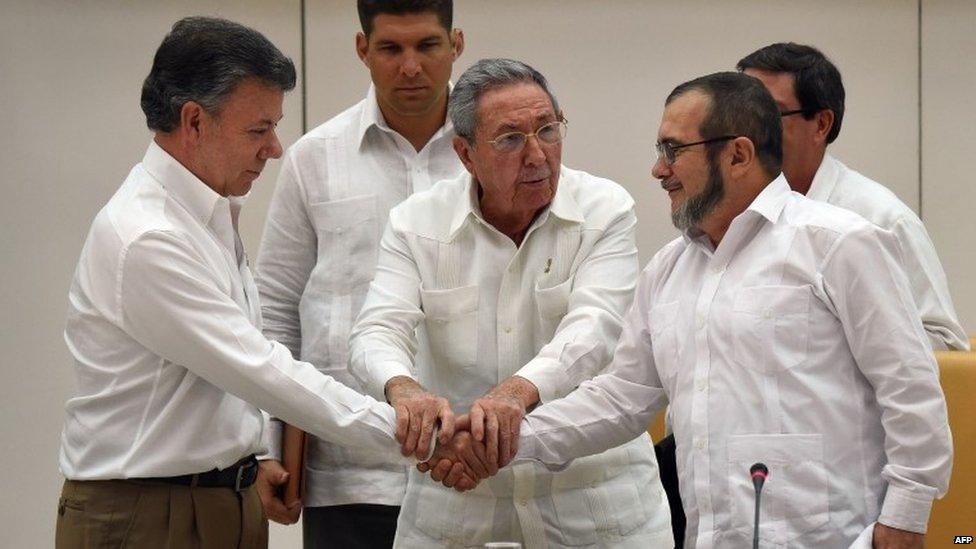
Mr Santos (left) and Farc leader Timochenko shook hands after a meeting facilitated by Cuban President Raul Castro (centre)
The Colombian President, Juan Manuel Santos, has given a leftist rebel group a stark warning about the future of peace talks being in held in Cuba.
Mr Santos told the Farc they must focus and reach an agreement on the outstanding negotiating points in order to sign a peace accord on 23 March.
For the first time since the process began, he indicated that the talks would not go ahead beyond that date.
The negotiations are aimed at ending more than five decades of conflict.
They were launched in Havana in November 2012.
Since then, agreement has been reached on the political participation of the rebels, land reform, drug trafficking and transitional justice.
But with five weeks to go until the agreed deadline, there are still disagreements over some issues of the disarmament process and implementation of the accord.
'Not prepared for peace'
"The time for finishing the negotiations is running out," said Mr Santos.
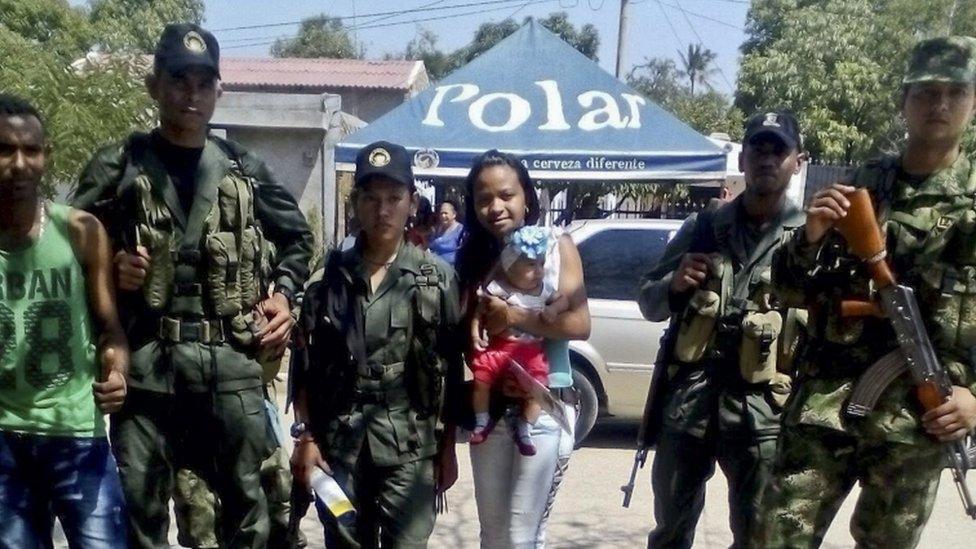
The presence of armed rebels at a Farc rally on Thursday outraged the government
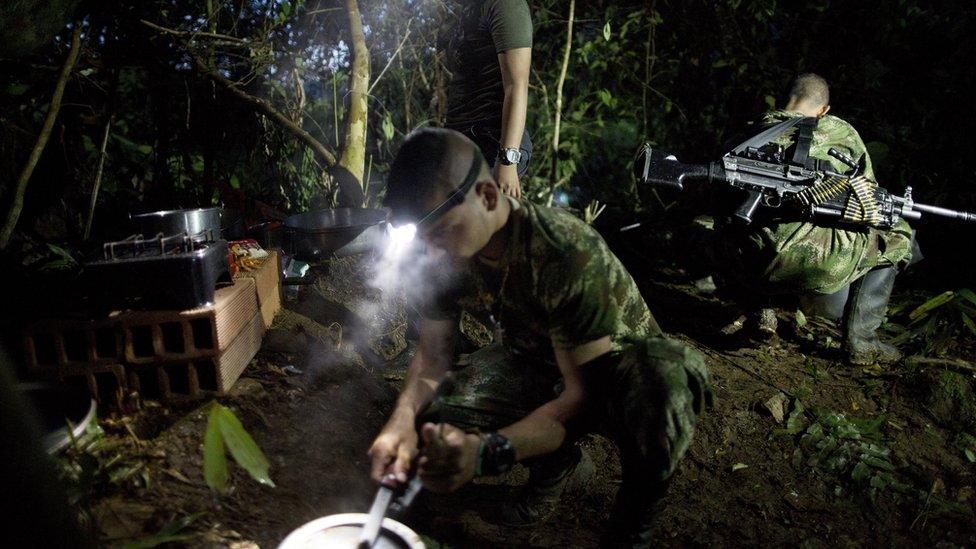
Farc rebels remain camped out in remote forested areas of Colombia
"If that doesn't happen, we, Colombians, will conclude that the Farc was not prepared for peace," he said during a visit to the northern department of La Guajira.
Mr Santos also accused Farc leaders of breaching the terms of the negotiations by holding a rally in the same area on Thursday in the presence of armed guerrillas.
"That was a big blow to confidence in the negotiations and to confidence of Colombians on the process," he added.
The public event was attended by top Farc commanders Ivan Marquez, Jesus Santrich and Joaquin Gomez.
In a statement, the Farc minimised the government's reaction to the rally, describing it as "unjustified controversy".
If an agreement is signed in Havana on 23 March, it will be submitted to a referendum by the Colombian people.
Should it be rejected, there will be no peace with the rebels, said Mr Santos.
The deadline was first mentioned when Mr Santos travelled to Havana on 23 September and shook hands with the Farc leader, Rodrigo Londono Echeverri, known as Timochenko.
More than 220,000 people have been killed and millions have been displaced in unrest which began in the 1960s and has also involved other guerrilla groups and right-wing paramilitaries.
- Published5 February 2016
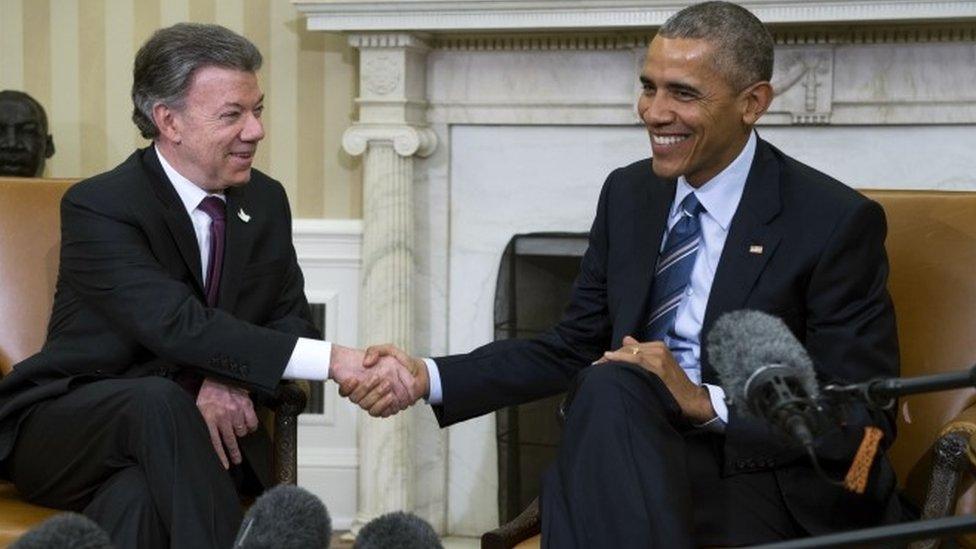
- Published25 January 2016
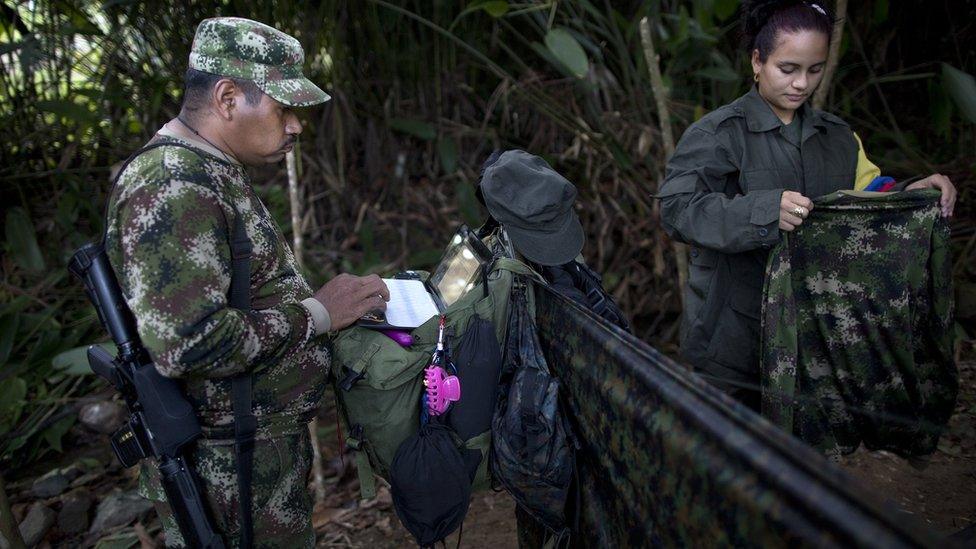
- Published21 January 2016
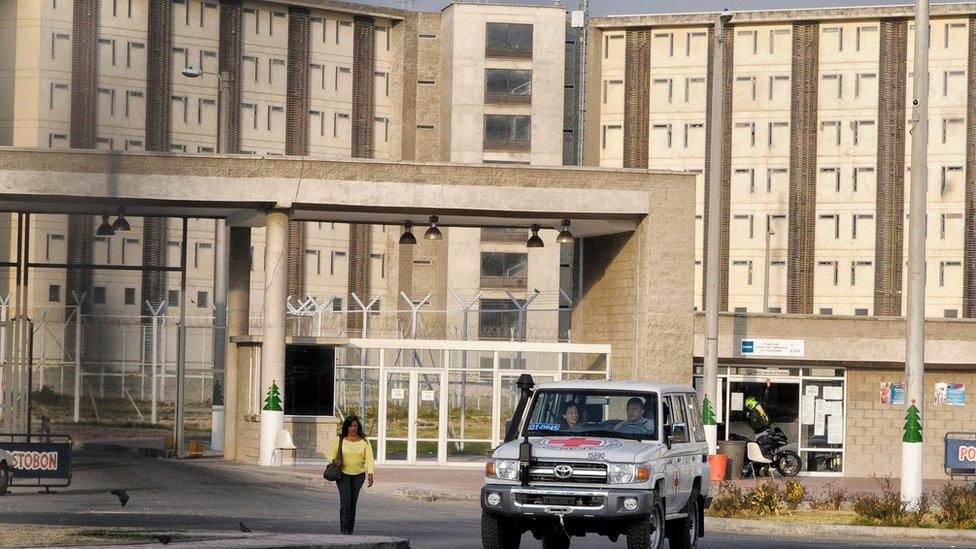
- Published19 November 2015
